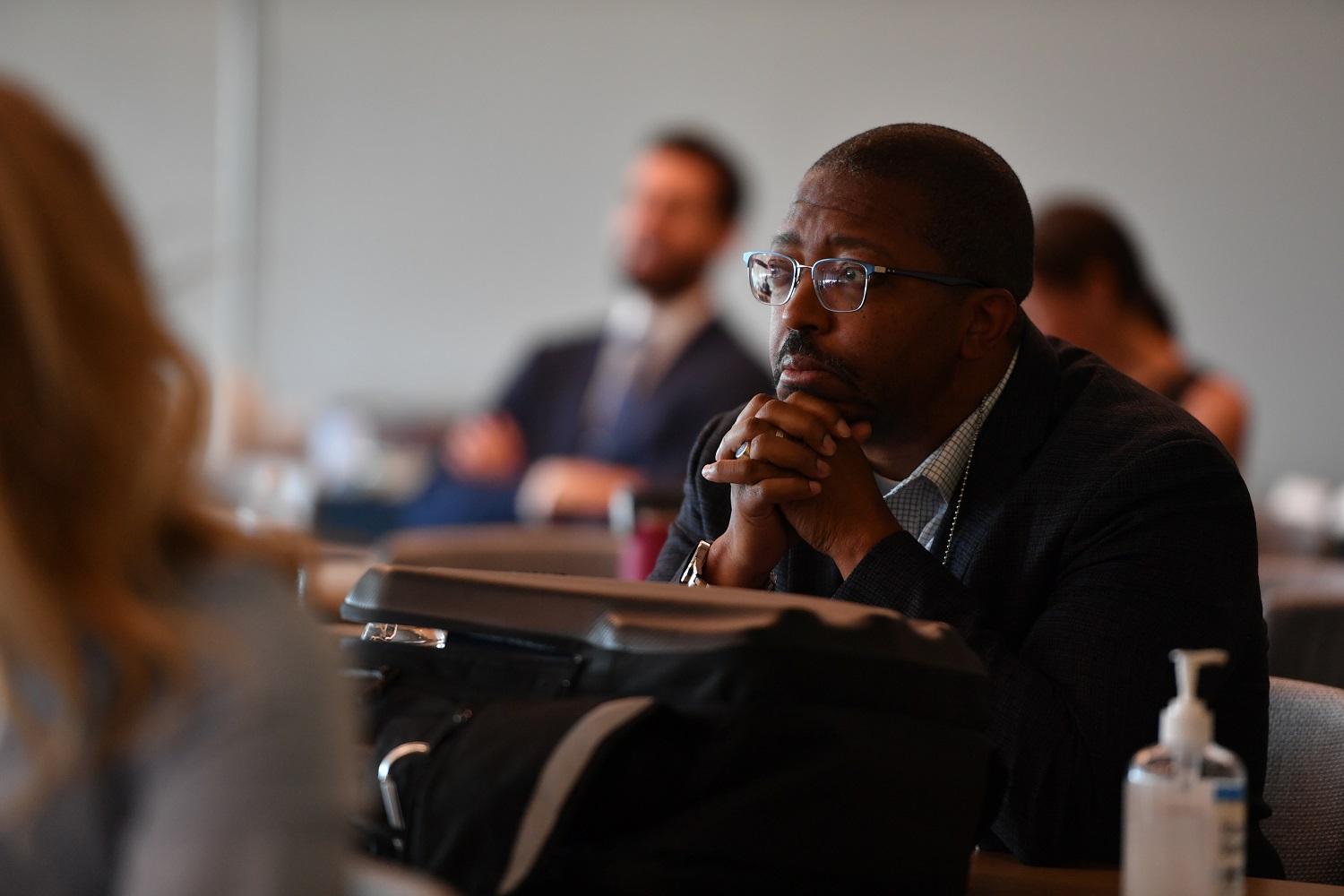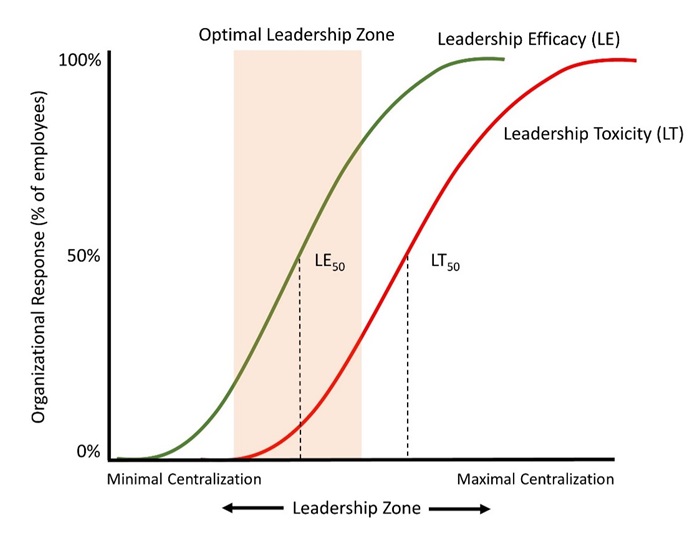When it Comes to Leadership, Start with the End of the Story
Michael Harris-Love Aug 9, 2022

No matter what the position title, or how lofty the rank, all these trappings of power are invariably temporary. In fact, if one steps far enough away from the precipice, it is patently obvious that it’s ALL temporary. The ephemeral nature of leadership is a good thing. If we think of “leadership” as an exogenous agent within the workplace ecology, then its use can result in both positive and negative effects. Under-utilizing leadership, or forms of leadership that are too decentralized, can result in an organization bereft of clear goals or structured decision making. Conversely, excessive centralized leadership can erode teamwork, decrease staff retention, and constrain innovation. In this vein, the execution of leadership can be viewed as a Leadership Efficacy-Toxicity Curve (Figure 1). While the curve can shift to the left or to the right based on the industry in question, the central relationship between Leadership Efficacy and Leadership Toxicity essentially remains in place. Holding on to leadership too tightly always yields toxic results for both the leader and everyone else within the organization.

Positions of leadership may be best thought of as an institution that requires stewardship rather than an asset that must be acquired. After all, these types of positions precede your arrival and will continue upon your departure. New department chairs learn, and seasoned managers know, that leadership places high demands upon its temporary custodians. Philosophers, theologians, and even former boxing champion, Mike Tyson, have expressed the sentiment that Hell is realized by getting everything that you want. Consequently, those who most effectively wield the power of their position start with the end of the story. This means holding the reins of power loosely, proactively thinking about leadership transition planning, and decreasing the potential toxicity of power by distributing it beyond the confines of your office. Importantly, starting with the end of the story means constantly recalling that one’s personhood does not equate to one’s livelihood.
Real power comes not from the strength required to hurl a stone into a lake. Rather, there is power in understanding that the resulting ripples in the water extend into our relationships, the prevailing culture that surrounds us, and the remnants of our labor that may persist when our lives eventually recede into the shoreline.
Notes:
Carucci R. 3 Ways Senior Leaders Create a Toxic Culture. Harvard Business Press; May 1, 2018.
Davis J. You Are Not Your Work. Psychology Today Magazine. March 26, 2019.
Lewis CS. The Great Divorce. Good Press; 2021.
Priesemuth M. Time's Up for Toxic Workplaces. Harvard Business Press; Jun 19, 2020.